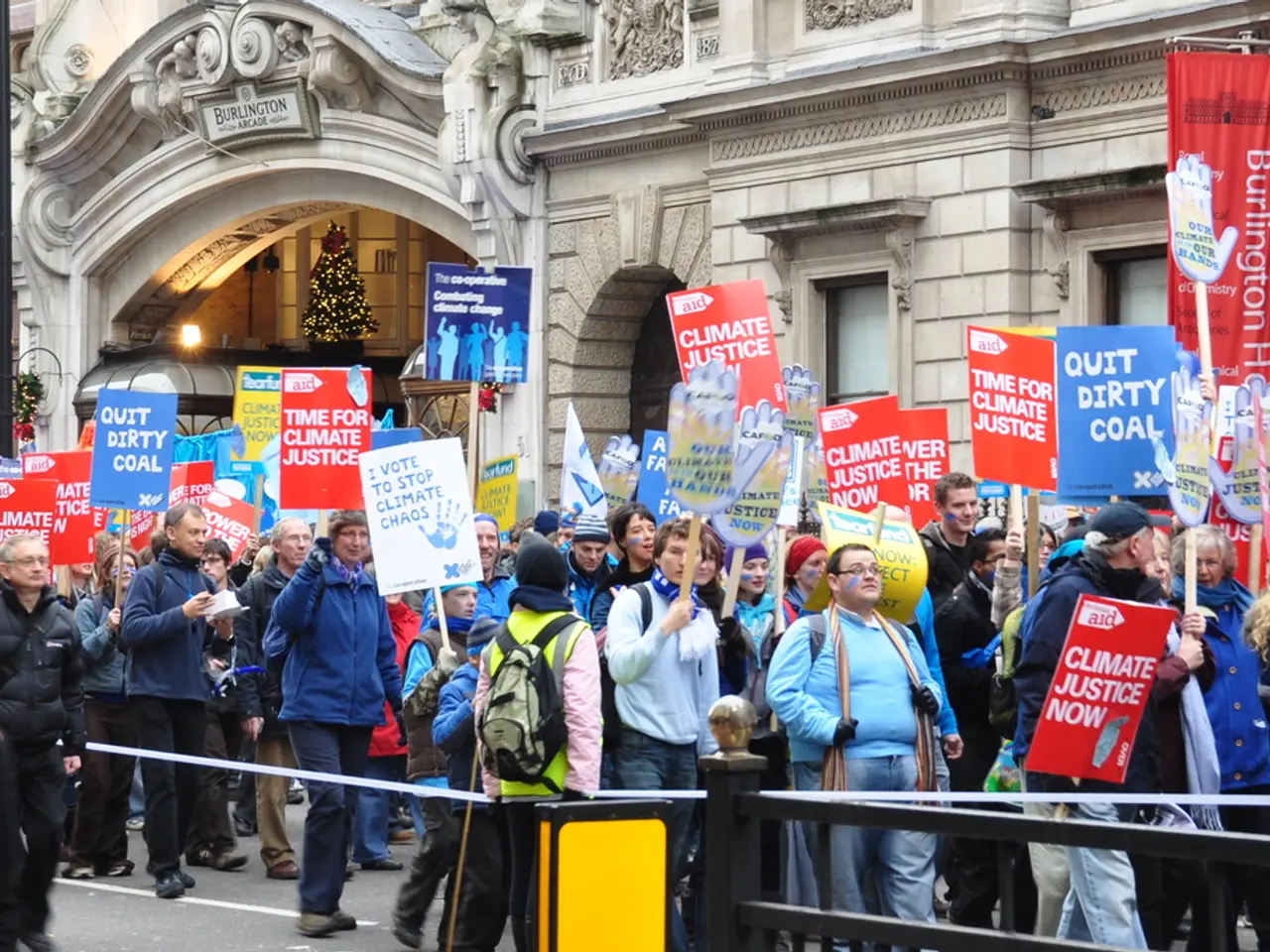Thuringians Keeping Up with Rent Amid Increased Costs: 2024's Surprising Rental Report
Majority of Thuringians Not Encountering Issues with Rental Payments - Unpaid rental obligations go unaddressed by the bulk of Thuringian residents
In the face of soaring ancillary costs, a majority of Thuringians have managed to remain current on their rental payments. A figure of 27.8 million euros in rental arrears was reported across municipal and cooperative housing companies, accounting for just 3.1% of total rent paid, according to the Housing Association's latest statement in Erfurt.
The average debt level has remained relatively steady in recent years, with 28.7 million euros outstanding in 2015 and 26.5 million euros during the peak of the Coronavirus pandemic in 2021.
Frank Emrich, the Association's director, attributes this relative stability to the value placed on housing and the warning system, which proactively engages tenants when defaults occur. Often, this conversation results in arrangements for modified payments or offers of support – a testament to the system's effectiveness.
Last year, the Association estimated that approximately 5 million euros worth of rents were uncollectable, representing around 0.5% of total rental payments. Reasons for these defaults can include financial difficulties such as consumer bankruptcies.
Emrich suggests that improved state support, which has expanded eligibility, has played a role in keeping rental arrears in check. However, the monthly payments remain challenging for many with small pensions or low incomes, particularly considering the recent surge in ancillary costs.
The current average cold rent for municipal and cooperative housing associations is 5.63 euros per square meter per month, with ancillary costs averaging 3.16 euros per square meter – though regional differences in energy prices can affect these figures significantly.
Terminations of rental agreements due to delinquent payments or tenant misconduct are uncommon in 2024, with only around 1,000 instances reported compared to 930 in 2021 and approximately 1,600 in 2015. It's worth noting that this doesn't necessarily imply that tenants have vacated their apartments.
Ancillary costs, often encompassing heating, water, electricity, waste disposal, and maintenance, have likely seen an increase during the pandemic due to factors such as higher energy prices, increased home utility consumption, and inflationary pressures on services like cleaning and waste management. However, specific regional data for Thuringia is not readily available, and precision requires dedicated local studies or reports from governmental bodies or energy providers.
- Rising Ancillary Costs
- Enduring Tenant Stability
- Erfurt
- Thuringia
- Rental arrears
- Coronavirus
- Housing Association
- Ancillary Cost Insights:
- Ancillary costs are likely a significant concern for Thuringian tenants due to higher energy prices, increased home utility usage, and inflationary pressures on services such as cleaning and waste management during the pandemic.
- Precise figures or percentages for Thuringia's ancillary cost increases during the pandemic are not readily available and would require dedicated local studies or reports.
- Governmental interventions during the pandemic aimed at rent protections may have limited rent increases, but ancillary costs are usually passed on directly to tenants based on actual consumption or fixed distribution keys.
- The Housing Association in Erfurt, Thuringia, attributes the stability in rental arrears, despite rising ancillary costs, to several factors, including the value placed on housing, a warning system, and improved state support that has expanded eligibility.
- Despite financial difficulties such as consumer bankruptcies, the Thuringian community has shown enduring tenant stability, with only around 1,000 instances of rental terminations due to delinquent payments or tenant misconduct reported in 2024, compared to 1,600 in 2015. This stability is witnessed in the context of rising ancillary costs, a significant concern for tenants due to higher energy prices, increased home utility usage, and inflationary pressures on services like cleaning and waste management during the Coronavirus pandemic.






